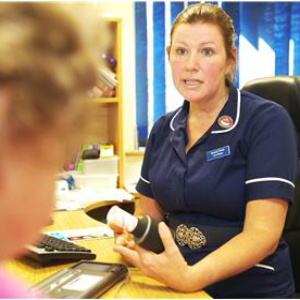Exclusive One in eight practice nurse places in the UK is vacant, a new survey from Pulse can reveal.
Out of 718 GPs who provided full responses, there were 1,881 FTE positions, of which 234.5 positions were unfilled – a vacancy rate of 12.5%.
GPs said the figures reflect their experience on the ground and that a plan to boost practice nurse numbers is badly needed.
It comes amid warnings of a ‘demographic time bomb’ among practice nurses and that the shortage may get worse if the Government implements plans to make nurses pay for their own training. From August next year, new nursing, midwifery and allied health students will no longer receive NHS bursaries. Instead, they will have access to the same student loans system as other students.
GPC deputy chair Dr Richard Vautrey said that the Pulse showed a national situation similar to that shown by the Leeds LMC survey. He said: ‘There is a serious recruitment and retention crisis in general practice nursing as well as for GPs. This just adds to the problems in maintaining services for many practices and leaves other practices staff with unmanageable workloads.
‘It’s linked to the historic failure to invest in primary care nurse training including the failure to fund training grants to training practices, as well as the longstanding focus on secondary care nursing at the expense of primary and community care nursing recruitment. Urgent steps have to be taken to tackle this serious problem.’
Pulse recently revealed that GP vacancy rates are at their highest ever, with around 12% unfilled across the country.
Dr Peter Swinyard, chairman of the Family Doctor Association, warned of a ‘demographic timebomb’ among practice nurses: ‘GP practices are going to lose a shedload of practice nurses in their fifties over the next five years just due to natural retirement’. He said that HEE should develop a more organised career structure for nurses, including postgraduate training for nurses who want to work in general practices.
Professor Martin Roland, professor of health sciences at the University of Cambridge and author of a major report on the primary care workforce last year, said that the shortage of practice nurses ‘had been an issue for a long time’
He said: We commented in our report that the problems of GPs and practice nurses were very similar – difficulty attracting nurses into general practice lack of career structure, ageing workforce and increasing retirements. We called for an equivalent of the 10 point plan for nurses.’
He said that in response HEE produced a ‘Nursing and General Practice Education and Career Framework’ in December 2016, and NHS England produced £15m for practice nurse development in the GP Forward View.
Although he added: ‘The bursary issue may affect recruitment to nursing schools, but that would take several years to filter through into primary care and would probably be evident in other settings first.’
NHS England’s General Practice Forward View acknowledged the difficulties in recruitment, and committed more than £200m on a number of schemes, including recruitment of pharmacists, retention of GPs and training nurses, clerical staff and practice managers.
Kathryn Yates, RCN professional lead for primary and community care, told Pulse that a shortage of nurses will damage patient care and has called for an increased effort to be made to recruit and retain.
She said: ‘Nurse practitioners are an integral part of the general practice team, providing vital care to patients, but this branch of the profession is experiencing real issues with recruitment and retention.’
The survey was launched on 28 April 2016, collating responses using the SurveyMonkey tool. The 24 questions asked covered a wide range of GP topics, to avoid selection bias on one issue. The survey was advertised to readers via our website and email newsletter, with a prize draw for a Samsung HD TV as an incentive to complete the survey. A total of 817 GPs answered this question.













